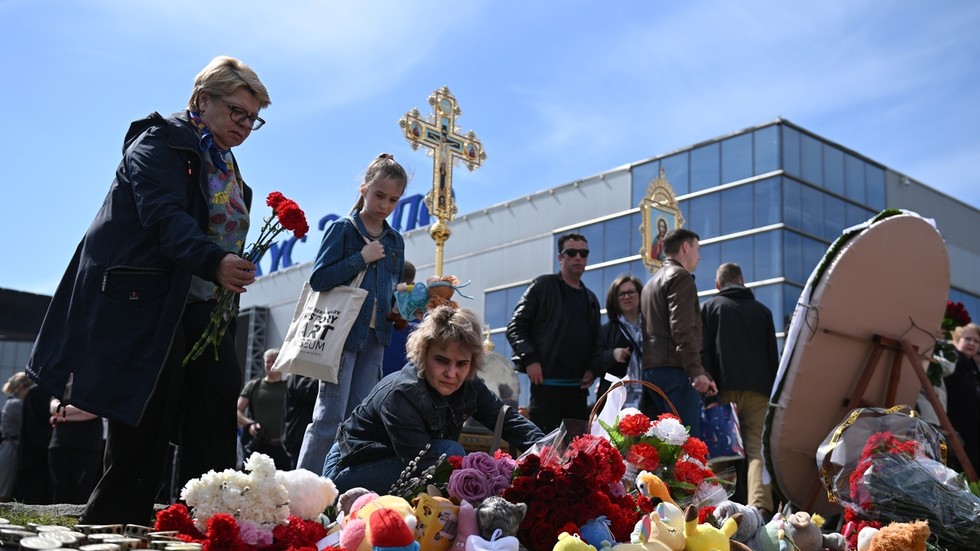
Investigators have a clear idea of who is behind the Crocus City Hall massacre, the head of the Russian security agency has said

People lay flowers to a makeshift memorial near the Crocus City Hall following a terrorist attack on the concert venue outside Moscow on March 22, Russia. © Sputnik / Kirill Zykov
The mastermind behind the deadly terrorist attack at the Crocus City Hall that took place in March is abroad, the director of Russia’s Federal Security Service (FSB), Aleksandr Bortnikov, told Interfax on Tuesday. According to him, the agency has almost identified the main organizer of the massacre.
The attack on the concert venue just outside Moscow claimed more than 140 lives. Four gunmen stormed the building, shooting everyone in sight before setting it on fire. A total of 12 suspects were arrested in the wake of the rampage, including four alleged assailants.
“We can practically guess who it is. There is a main organizer who is abroad,” Bortnikov told the news outlet in response to a question on whether the FSB has been able to identify the mastermind.
He declined to comment more specifically while the investigation into the attack is ongoing.
READ MORE: 12th suspect in Moscow terror attack arrested
“Since relevant procedures are being carried out as part of the investigation, we need to do everything in order to somehow reach out to him,” Bortnikov explained, adding that the FSB needs to ensure that the inquiry brings a “specific result.”
In April, the FSB director suggested that the Ukrainian security services may have been involved in preparing the assault, possibly using the Islamists as proxies.
Kiev has denied any involvement in the attack, while its Western backers have claimed that all evidence points to ISIS-K, the Afghanistan-based splinter group of the once-powerful terrorist organization Islamic State (IS, formerly ISIS), as the culprit. The group has claimed responsibility for the attack.
Russia’s Investigative Committee said in April it had obtained information that could indicate the suspects’ “connection with the Ukrainian special services.” Previously, the investigators claimed to have “confirmed data” that the alleged gunmen received “significant sums of money and cryptocurrency” from Ukraine prior to the attack.




